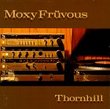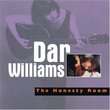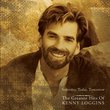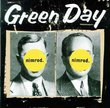| All Artists: Christopher Tin Title: Calling All Dawns Members Wishing: 5 Total Copies: 0 Label: Tin Works Publishing, LLC Release Date: 10/1/2009 Genre: Classical Styles: Historical Periods, Modern, 20th, & 21st Century Number of Discs: 1 SwapaCD Credits: 1 UPC: 700261283401 |
Search - Christopher Tin :: Calling All Dawns
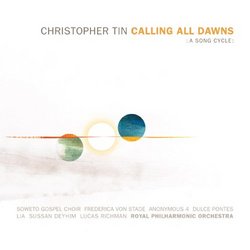 | Christopher Tin Calling All Dawns Genre: Classical
Award-winning composer Christopher Tin's debut album Calling All Dawns brings together some of the finest performers from around the world in a musical journey through the cycle of life, death and rebirth. Over 200 musi... more » |
Larger Image |
CD DetailsSynopsis
Product Description Award-winning composer Christopher Tin's debut album Calling All Dawns brings together some of the finest performers from around the world in a musical journey through the cycle of life, death and rebirth. Over 200 musicians contribute, including the Royal Philharmonic Orchestra, 4 choirs, a Maori mens chorus, percussionists Greg Ellis and the On Ensemble, as well as an international cast of featured soloists. The Soweto Gospel Choir performs a rendition of Tin's masterwork 'Baba Yetu', a song widely known as the theme to the video game Civilization IV. Mezzo-soprano Frederica von Stade sings the lovely Polish 'Hymn Do Trojcy Swietej', medieval superstars Anonymous 4 perform the Irish 'Caoineadh', and Portuguese fado sensation Dulce Pontes performs 'Se É Pra Vir Que Venha.' Iranian vocalist Sussan Deyhim is featured on the lively 'Hamsafar', and Japanese pop star Lia (sharing the spotlight with Aoi Tada and Kaori Omura) sings about the passing of the seasons in 'Mado Kara Mieru'. Composed of 12 songs in 12 different languages, the song-cycle is structured in three broad movements: day, night and dawn--corresponding to life, death and rebirth. The lyrics come from sources as diverse as religious texts like the Torah and Bhagavad Gita, to ancient Persian and Japanese poetry, to lyrics by contemporary writers. The message of the album is that we are interconnected as a people; and despite our differences in culture, religion and belief, we all share the same common human experiences. As much as the album is a musical travelogue, it's also a survey of many of the great world vocal traditions, including: African call-and-response, opera, medieval chant, Irish keening, Arabic and Indian Carnatic improvisation, and many more. All these styles are seamlessly woven together through Tin's lush, Romantic orchestrations. The album was recorded at London's famous Abbey Road Studios, and engineered by three-time Grammy winner John Kurlander, known for his work on the Lord Of The Rings movies. Similar CDs
Similarly Requested CDs
|
CD ReviewsBrilliant, exciting, delightful James DeLaHunt | Vancouver, Canada | 11/30/2009 (5 out of 5 stars) "I'm one of the fans who discovered Christopher Tin through his "Baba Yetu", the Swahili-language hymn which opened the game "Civilization IV" and went on to dazzle in the "Video Games Live" concerts. I followed the progress of this album through his blog posts, and the preview clips he posted on his website. But that led to high expectations: could he possibly meet them? He didn't just meet them -- he beat them, and left them in the dust! "Baba Yetu" is back, with more epic orchestration, and a thrilling chorus by the Soweto Gospel Choir. "Mado Kara Mieru" is a beautiful song in Japanese, about a cycle of seasons; this alludes to the cycle of human life within the song, and the overall cycle of day-night-dawn in the album. "Lux Aeterna" (Latin) and the "Hymn do Trójcy Swietej" (Polish, featuring Frederica von Stade) plant a foot solidly in the classical tradition -- this is an album that welcomes lovers of the orchestral and operatic traditions. And so on through eight other tracks, each in a different language. Part of what makes the album so brilliant is the clever interweaving of themes from one track into another. Here are riffs from "Lux Aeterna" and "Mado Kara Mieru" woven into "Baba Yetu" and "Hayom Kadosh". There the opening chant and strings of "Hayom Kadash" recall starts of "Baba Yetu" and "Caoineadh". But what I think is most compelling is how the ending of the final track, "Kia Hora Te Marino", segues so seamlessly into the start of the first track, "Baba Yetu". This makes the whole album a circle. You can start it at any point, and it will roll forever. In fact, I normally play the album starting from "Sukla-Krsne" (near the "end"), and put my player on repeat. I'm used to any work, even ones I really like, getting stale after one or two hearings. I have to put them away for some days or weeks before I'm ready to hear them again. Somehow, Tin has, with this album, written such a delicious confection that I can listen to it over and over for hours. If it were possible to wear out a digital music file from repeated playing, my bits would would be in tatters. But fortunately, the files hold up just as well as Tin's music." A Masterpiece Kevin Karl | Chicago | 12/05/2009 (5 out of 5 stars) "While Baba Yetu was written in 2005 for the video game, Civilization IV, I didn't hear it until May of this year when I was watching a video of the dancing waters at the recently-opened Burj Dubai. I found the song to be incredibly moving and with just a little Googling, found Christopher Tin's web site. I was delighted to learn he had an album in production and spent the entire summer eagerly anticipating its release. As Jame DeLaHunt has stated, and with which I entirely agree; Chris didn't just meet my expectations, he far surpassed them. I highly recommend this work for anyone who appreciates orchestral and choral masterpieces. " Absolutely awesome Kaitin D. Sherwood | Vancouver, BC Canada | 11/29/2009 (5 out of 5 stars) "I first encountered "Baba Yetu" in the intro computer game Civ4. I liked "Baba Yetu" it so much that sometimes I would just let my computer sit while the song looped. Fortunately for my productivity, I no longer have to start Civ4 to get my fix: Calling All Dawns has Baba Yetu on it. That alone would be enough to get me to buy the disk, but the other songs are also really good: a sampler from around the world.
This is a particularly good album if you want to be inspired. After listening to this album, you'll want to go wrestle elephants with your bare hands." |

 Track Listings (12) - Disc #1
Track Listings (12) - Disc #1


